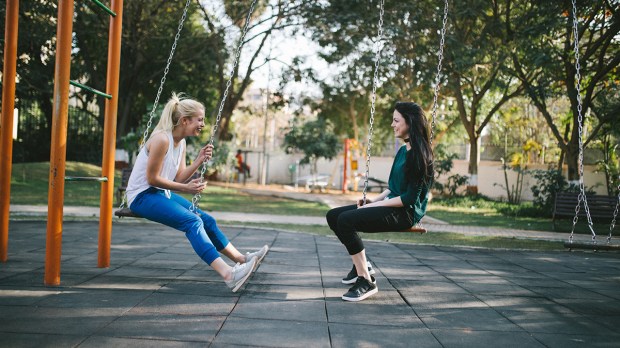Lenten Campaign 2025
This content is free of charge, as are all our articles.
Support us with a donation that is tax-deductible and enable us to continue to reach millions of readers.
True friendship differs from simply being acquaintances or casual companions. It has unique characteristics, which Fr. Luigi Epicoco, an Italian priest, philosophy professor, and writer explains for us.
Friendship and prayer
At the most difficult moments of Jesus’ life, when He experienced fatigue and the need for rest, He had two ways of handling it: prayer and friendship.
The New Testament often mentions Jesus going off to pray alone, but we also find him relaxing with his disciples or at the house of Martha, Mary and Lazarus.
“I think that’s a beautiful lesson for each of us. Prayer and friends are two great antidotes to our existential difficulties,” says Fr. Epicoco in his book “Martha, Mary and Lazarus” (“Marta, Maria e Lazzaro,” published in Italian).
Friendship vs. mere accompaniment
Perhaps we, too, the priest continues, seeing how Jesus was a friend, could ask him, “Teach us to be friends.” We need to correct the idea in which we confuse friendship with spending time with people in a group. Being physically near to a person often isn’t sufficient basis for saying that we’re also friends. Nor is it enough to have a juridical bond in an association, a movement, or an ecclesial experience to make us friends.
Being friends is a profound characteristic of a relationship that depends more on our inner choices than on the external factors that bring us together.
Friends saves each other’s lives
When we confuse friendship with spending time with people in social situations as a group, we are disappointed, because groups do not save lives — friends do. It’s not an external bond that makes us friends with someone, but something much deeper.
Whose well-being is at stake?
In friendship, we’re not only worried about ourselves. In a friendship, at some point, we also come to care about each other’s well-being now and in the future. We’re interested in what happens to the other person, and not simply what happens to us. We’re friends not when we focus exclusively on others, nor even less when we focus solely on ourselves; friendship forms when those two things go together.
Softening flaws through interaction
Friendship, says Fr. Epicoco, is an environment in which there are aspects of us that are softened and others that are strengthened. It’s only in an authentic relationship of friendship that our defects can be shaped and softened, and the talents that are buried within us begin to emerge. We can only become our best authentic selves through friendship.
Loving each other for who we are
According to Fr. Epicoco, another characteristic of friendship, along with authenticity, is selflessness. What does it mean to feel loved selflessly? To know that the other person loves you not because he or she is interested in getting something from you, but loves you for who you are. Sometimes we love people because we’re seeking their conversion, and that too can be a lack of selflessness. But we must learn to care for people even if they will never convert.



